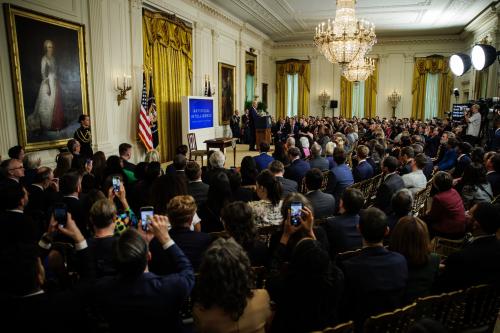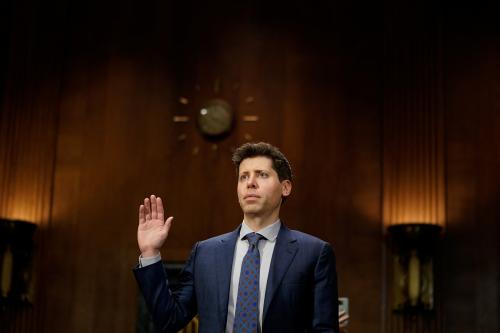Last June, Brookings senior fellow Elaine Kamarck and I published a paper laying out the rise of short-term thinking in U.S. corporations. We argued that this trend was bad for the economy, and we suggested policies that would at least slow it down and diminish its effects.
Since then, additional research on short-termism has emerged, and an increasing number of corporate leaders are expressing concern about the trajectory of U.S. firms. Last November, for example, the Boston Consulting Group documented a worrisome decline in the corporate activities and investments designed to discover and nurture future growth opportunities. This turn away from exploratory activities may not immediately affect investors, said the BCG report: in the short term, companies can maintain earnings and shareholder returns by “cutting costs, increasing dividends, and pursuing share buybacks.” (As Kamarck and I showed, this is what is happening across our economy.) But in the long run, BCG researchers found, firms that invest in exploration boost revenues and total returns far faster than do those who are content to exploit their existing lines of business and return most of their earnings to shareholders in the form of dividends and buybacks.
A few days ago, Laurence Fink, the chief executive of the world’s largest investment fund and a long-time foe of short-termism, sent a letter to the heads of S & P 500 companies and large European corporations. He noted that in the twelve months ending September 30 2015, buybacks had risen by 27 percent over the previous year, when buybacks already stood at record levels. “Today’s culture of quarterly earning hysteria,” he declared, is “totally contrary to the long-term approach we need.” And he warned corporate executives that in the absence of well-considered long-term plans for investment and growth, they would expose their firms “to the pressures on investors focused on maximizing near-term profit at the expense of long-term value.”
Many influential investors agree with Fink, and they are joining forces. On February 1, the Financial Times reported that since last summer, the world’s largest asset managers—Warren Buffett, Jamie Dimon, the chief executive of JPMorgan Chase, and the heads of BlackRock, Fidelity, Vanguard, and Capital Group, among others—have been holding secret meetings to frame proposals that would encourage longer-term investments while reducing friction with shareholders. These proposals, which are reportedly some months away from final agreement and publication, may well involve changes in boards of directors, executive compensation, and shareholder rights.
The summit participants plan to support these changes for the companies in which they invest. Given the pools of funds they control, which amount to many trillions of dollars, their coordinated action may well represent a turning-point in the struggle to reorient corporate strategy toward the long term.



Commentary
The emerging strategy to deal with corporate short-termism
February 3, 2016